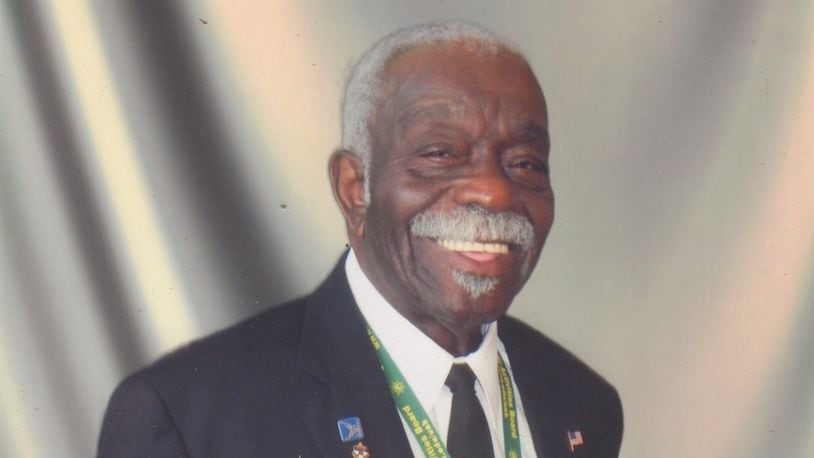Willett died Nov. 12 in the LanePark of Huber Heights memory care unit. It was the last home for the man who, over the course of 95 years, called places like Yellow Springs, Chicago and a host of military installations home.
His hometown of Robbins, Ill., honored Willett in the Robbins History Museum as one of the 10 original Tuskegee Airmen from the city. There, in 1931, the nation’s first black owned and operated airport opened. The museum refers to the city as home to “the true embryonic beginnings” of the black airmen.
Willett recalled, in a letter to his grandchildren, how he became one of the original Tuskegee Airmen. First, while in high school he joined the 8th Infantry of the Illinois National Guard. In November 1940, he joined the U.S. Army and served in the 184th Field Artillery Unit base at Camp Custer, Mich., before being assigned to the 930th Field Artillery Battalion at Camp Butler, N.C.
In 1943, he qualified to take the twin engine pilot training.
“We received the best training,” he wrote. “‘The best training in the world,’ sounds like a big statement — and it is — but that’s what America’s young got when they were accepted by the Army Air Force for training as ‘Pilots, Bombardiers, and Navigators.’”
Accepted, that is, by the military of a nation that had not yet extended full rights to men like Willett. That same nation would, in 2007, recognize Willett and nearly 300 fellow Tuskegee Airmen with the highest civilian honor bestowed by the federal legislature, the Congressional Gold Medal.
“You made the ultimate act of patriotism,” said former Sen. Carl Levin of Michigan to the airmen during the U.S. Capitol ceremony he helped spearhead to get the fighter pilots recognized. “To love your country when that love is not reciprocated.”
He would work to become a sergeant before an honorable discharge in 1945, following service in the European-African-Middle Eastern theater and the battle of North Apennines.
Coming back from the war, Willett met the future Mary Durgans. They dated, but it didn’t last. The pair separated.
Willett married Mable Gordon in 1951 and four children —Vernetta, Everett, Melvin and Linda — were born. Their father served in the Chicago Police Department from 1955 to 1986.
“I worked as a beat officer, walking a beat, because very few Negro officers were assigned to squad cars even in the Negro community,” he wrote. He later investigated child abuse in Illinois for the state’s family services department.
In the 1990s, he again met Mary Durgans at a show in Richmond, Ind. They rekindled a relationship and were married in 1994, bringing her children — Thomas Jr, Kenneth, Karen and Cheryl — into his life.
He spent the later years of his life with family, his fellow airmen and his photography equipment. The couple traveled from state to state, attending conventions and functions for the airmen.
“That was one of the highlights of his life, to go to the Tuskegee Airmen convention,” said Mary Durgans Willett. “He had quite a busy life.”
The memorial service for Willett will be held 1 p.m. today at First Baptist Church, 600 Dayton St., Yellow Springs.
About the Author
